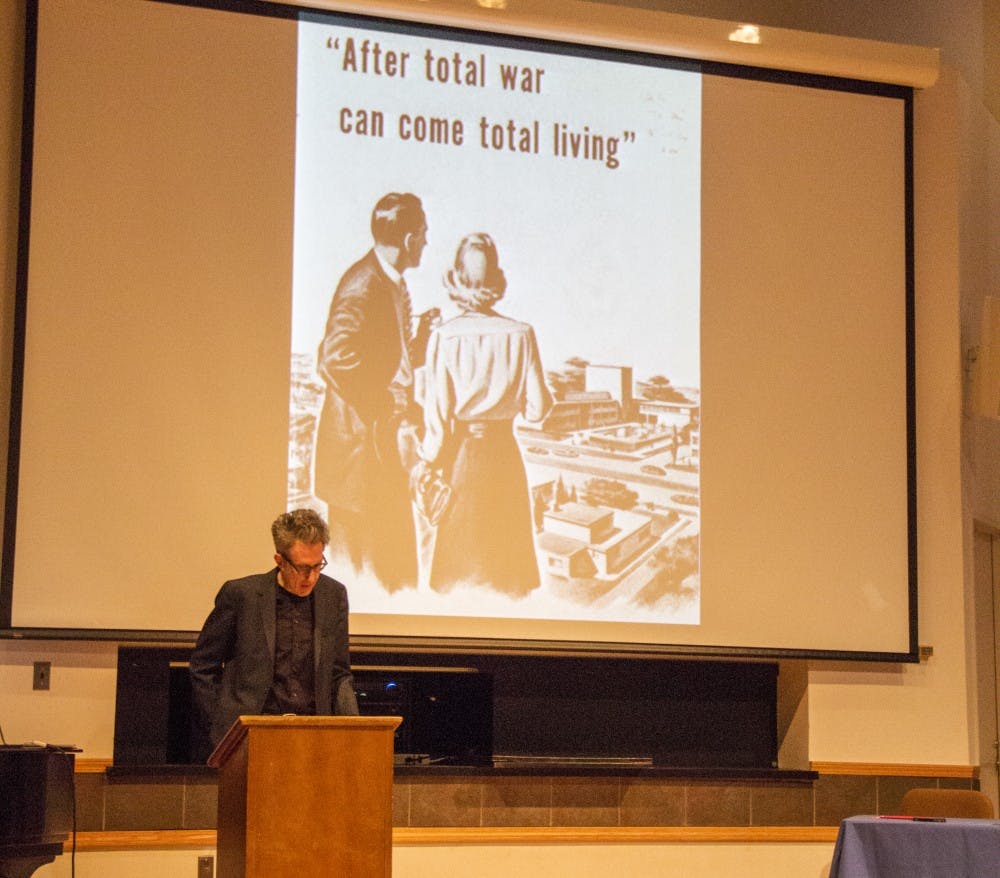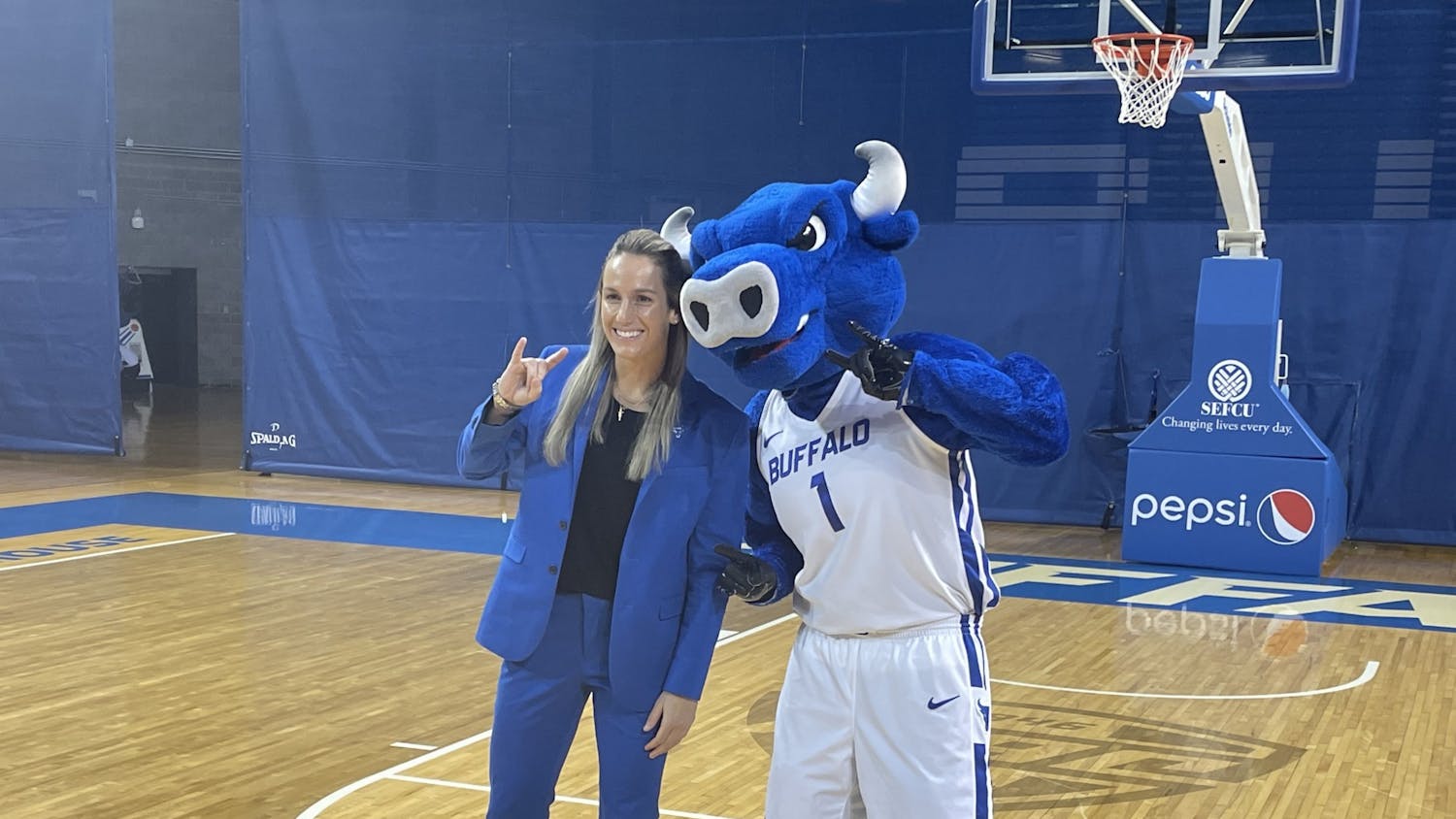Faculty from around the country discussed music, technology, history and politics in Baird Hall on Monday during a symposium.
The Humanities Institute hosted the Modernisms Research Workshop at “Sounds: Avant-Garde, Modernism, and Fascism.” The symposium, part of the larger Kurt Weill Festival, examined aspects of the artist's life while exploring themes of comedy, music and more. The event was the second in this year’s “Humanities to the Rescue,” an annual UB series that showcases modern interpretations of the world through an arts and humanities-centric lens.
“Sound has become very interesting in the humanities,” said Laura Chiesa, an event organizer and a professor in the romance languages and literatures department. “You think about all the things you can do with audio, music and literature. That’s what’s going to happen at the event. I think it’s really coalescing in a nice way.”
Guest speakers included Kim Kowalke, musicology professor at the Eastman School of Music. Kowalke discussed the life of Kurt Weill, the German composer the festival was held in honor of.
Kowalke discussed Weill’s Broadway-musical past along with his brief stint on NBC’s run of “The Swift Show” in 1948. Although Weill was only 50 when he passed away, he impacted a number of musicians and focused on theater for almost 30 years. His music was inspired by underprivileged people and those who were at risk of persecution as he was as a Jewish man living Nazi Germany.
Other speakers included UB musicology professor James Currie, who discussed “comic indifference” in the modern world. He analyzed the well-known cartoon character Bugs Bunny and labeled him “quintessentially a figure of modernity.”
Currie suggested that the rabbit’s lack of a true home and stability were relatable concepts for many people today. He also explored political connections to comedy and mentioned Donald Trump’s rise to political office.
A few musical performances were interspersed throughout the one-day event and organized by music department chair Jonathan Golove. These included operatic singing and cello performances.
Dozens of students, faculty and community members attended the event.
Dana Venerable, a third year English Ph.D. candidate, said one address mentioned that Nina Simone and comic dynamics in her performances are something that not “a lot of people” could pick up on if they did not know the artist's “eclectic” cross-genre knowledge.
“I found [it] to be a dynamic place to enter the conversation regarding ways of using comedy to address these huge undergirding issues of race relations,” Venerable said.
UB faculty such as Damien Keane and William Solomon also presented at the symposium.
Keane, director of graduate studies and professor in the English department, spoke about Marlene Dietrich (World War II USO performer), Columbia Records’ invention of the LP and how war was advertised to boost “morale.” He further discussed how sound engineering and recording became technologically advanced.
Solomon, an English professor, discussed how Weill influenced theater and rock music in the ‘60s.
“The event is [held] to gather people talking about Kurt Weill but to also be thinking about the intersection of politics and art before WWII and technology — the medium of music and the sort of changes it went through by way of photographs and different recording techniques,” said Solomon.
Brandon Clarke, a junior pharmacology and toxicology major, said he loves learning about history and did not know about Weill before the event.
“One thing that was cool was that [Weill] worked with Langston Hughes and a lot of other composers,” Clarke said. “After learning about him, I’ll probably look into his music a bit more. A lot of people write music for different reasons. In a way, it sheds light on important aspects of expressing yourself.”
Abhi Wagh is a staff writer and can be reached at features@ubspectrum.com.





